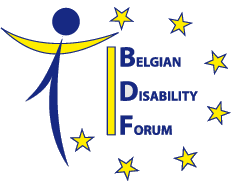Work and education
Employment is the main way for people with disabilities to participate in social life. Establishing and developing relationships with the outside world is an important aspect of the right to private life, as guaranteed in Article 8 of the European Convention on Human Rights (ECHR) and recognised by the European Court of Human Rights. In addition, Articles 24 and 27 of the United Nations Convention on the Rights of Persons with Disabilities (UNCRPD) also guarantee the right to education and employment for persons with disabilities.
Unfortunately, however, work is not easy for persons with disabilities. In the context of the European Semester 2022, the European Commission states that the employment rate gap in Belgium is around 36 %, 12 % higher than the EU average (24 %). This means that there are 36 % fewer people with disabilities employed than people without a disability. Coupled with the fact that persons with disabilities also have a higher risk of poverty (10 % more), this outlines a very precarious situation.
According to the European Pillar of Social Rights, at least 80 % of the Belgian population aged between 20 and 64 must be in work by 2030. The European Commission is therefore hopeful that some of its initiatives will help Member States on their way to promoting the employment rate of people with disabilities.
